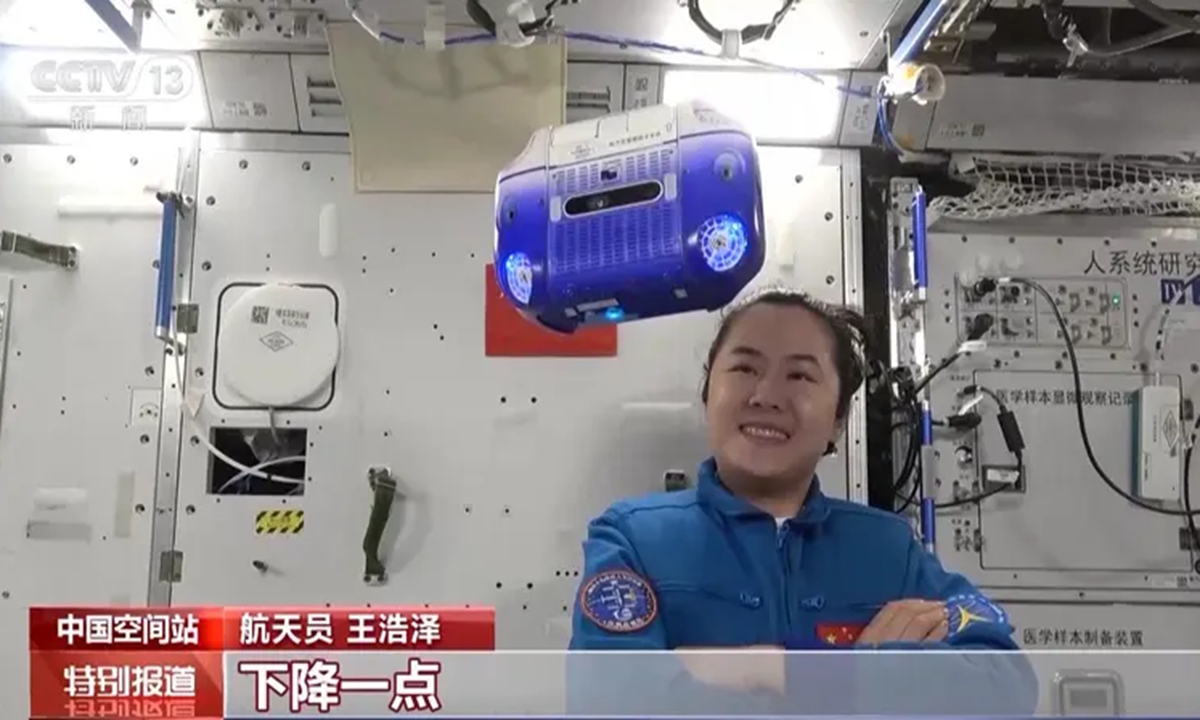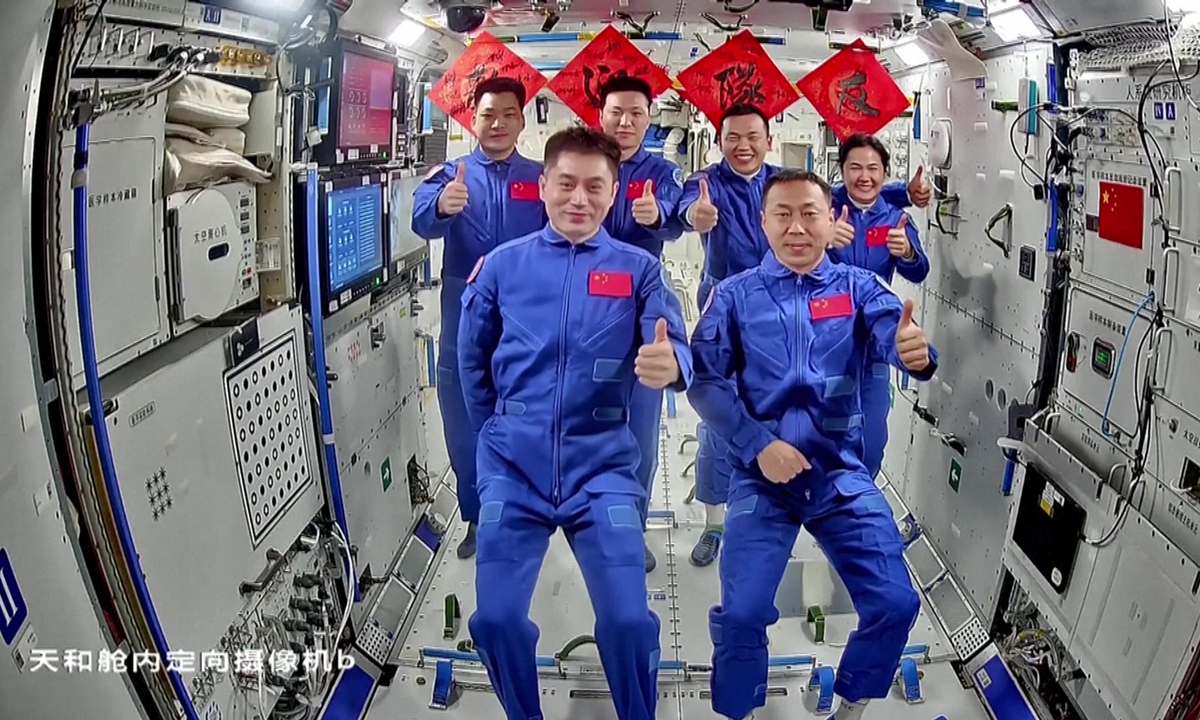Shenzhou-19 taikonauts send blessings from space, introduce new intelligent 'partner'

Wang Haoze, China's first female spaceflight engineer, introduced a special "new partner" named Xiao Hang in the New Year greeting video. photo: CCTV
Welcoming the arrival of a new year, the Shenzhou-19 taikonauts in China's Tiangong Space Station have sent their greetings from the vastness of space, and shared a "special gift" with the country - a photo capturing the first ray of dawn for the Chinese space station in 2025. They vowed to continue striving for a strong space nation.
At the China Astronaut Research and Training Center, reporters from the China Central Television (CCTV) were able peek into the lives of the Shenzhou-19 crew, who remained busy with tasks aboard their space home on the last day of 2024 as usual, having just completed the restoration of extravehicular experimental payloads, CCTV reported on Wednesday.
"We are conducting muscle and bone stress experiments using the human system research cabinet, and utilizing advanced equipment such as ultrasound and bone loss countermeasures to perform weightlessness protection in orbit. In the new year, may our space laboratory yield abundant results, and I wish everyone good luck!" said taikonaut Song Lingdong.
Wang Haoze, China's first female spaceflight engineer, introduced a special "new partner" named Xiao Hang in the greeting video. Wang demonstrated its functions: "Xiao Hang can not only rise and fall and take photos intelligently as commanded, but in the future, it will also be able to perform various functions such as in-cabin inspections and resource management through upgrades, becoming our smart assistant. Xiao Hang and I wish everyone a Happy New Year!"
Mission commander Cai Xuzhe concluded by expressing gratitude to all supporters of China's space endeavors: "It is thanks to your support that our country's space industry can thrive." In the new year, Cai vowed on behalf of the crew to continue to work hard and complete their upcoming tasks.
On New Year's eve, Chinese President Xi Jinping delivered his 2025 New Year message through China Media Group and the internet. Recalling the memorable moments of 2024, Xi said "…Also for the first time, the Chang'e-6 lunar probe collected samples from the far side of the moon. The Mengxiang drilling vessel explored the mystery of the deep ocean. The Shenzhen-Zhongshan Link now connects the two cities across the sea. The Antarctic Qinling Station is now in operation on the frozen continent. All this epitomizes the lofty spirit and dreams of the Chinese people to explore stars and oceans."
From 2016 to 2025, this marks the 10th year of China's space programs entering the New Year greetings, according to Our Space, an official new media platform reporting China's space news.
The Shenzhou-19 crew watched Xi's New Year message in real-time from space. They pledged to take practical steps toward exploring the stars and oceans, and to striving for a strong space nation, CCTV reported.
Currently, the Shenzhou-19 crew has been in orbit for two months. In 2025, they will continue to conduct space science and application experiments, and will carry out extravehicular activities as appropriate, the report said.
In December 2024, Cai Xuzhe, Song Lingdong and Wang Haoze, closely coordinating with each other and, with the assistance of the space station's robotic arm and a team on Earth, successfully completed the first extravehicular activities of their mission in nine hours.
The achievement set a new world record for spacewalk duration, surpassing the previous record of eight hours and 56 minutes set by US astronauts in 2001, calling it the "latest milestone" in China's space technology development. This accomplishment marks another significant step in both China's space exploration and humanity's overall progress in space, which is worth celebrating.
Global Times



